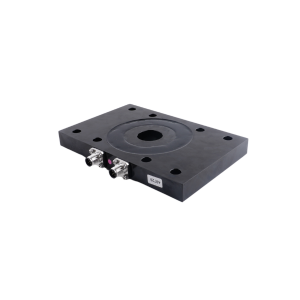Have you ever thought about how big semi-trucks on the highway avoid overloading? Or how they ensure fair and accurate payment for the goods they are hauling? The answer often lies in a humble, yet vital piece of equipment: the truck scale.
I’ve worked around these things for years, and I’ve seen firsthand how important they are. They aren’t just about obeying the law (though that’s a big part of it!) – they’re about safety, efficiency, and good old-fashioned fair dealing. So, let’s dive into the world of truck scales!
607A 10T On board weighing load cell for cement flow control
Why Weigh Trucks in the First Place?
Think about it. Overloaded trucks are a danger to everyone. They put immense stress on roads and bridges, causing premature wear and tear. Their braking distance is longer, which raises the likelihood of accidents. Plus, it’s just plain unfair to the trucking company and the driver.
Truck scales help prevent all that. Measuring a truck’s weight with precision helps ensure it meets legal limits. It keeps our roads safe. It protects our infrastructure. It also helps trucking companies be responsible. They also ensure honest payment for the delivery. If you haul 100,000 lbs, you are going to get paid for that amount.
The Many Faces of Truck Scales: Finding the Right Fit
The world of truck scales isn’t a one-size-fits-all kind of deal. There are several different types, each designed for specific needs and applications. Let’s take a look:
-
Truck Weigh Scales (or Platform Scales): These are the industry’s workhorses. You can install them in-ground or above-ground. They feature a large platform that fits a whole truck and trailer. They provide the most accurate and reliable weight measurements. You’ll find these at shipping facilities, distribution centers, and even some truck stops.
8200 On-board weighing load cell for coal trucks
-
Portable Scale Trucks: Need to weigh trucks in remote spots? Use portable scale trucks at construction sites or temporary loading areas. That’s where portable truck scales come in handy. The designers made the scales easy to carry and set up anywhere users want. They are often modular. This means they can expand to fit different truck lengths.
-
Not possible to remove the adverb. They show drivers their current weight distribution in real-time. This helps them adjust to avoid overloading axles or exceeding legal limits. Think of it as a constant internal check. They’re popular with haulers who often load and unload cargo in different places.
-
Axle Truck Scales: These scales measure the weight of each individual axle on a truck. Weigh stations use scales to spot vehicles that might exceed axle weight limits. They also help with weight distribution. This is important for safe and efficient handling.
-
Truck Stop Scale: When truckers are on the road, they need to weigh their loads periodically. Truck stop scales provide a convenient and accessible way for them to do so. You can find these scales at truck stops and rest areas. They provide drivers with a quick and reliable weight check.
-
Pallet Truck Scales (Related but Different): These scales don’t weigh trucks. They serve a different, but useful, purpose. People often use them in warehouses and loading docks. They weigh individual pallets of goods before loading them onto trucks. This helps ensure accurate inventory control and prevents overloading.
Choosing the Right Scale: Factors to Consider
Choosing the right truck scale requires you to think about some key factors:
-
Capacity: How much weight do you need the scale to handle? Make sure to choose a scale with a capacity that exceeds the maximum weight of the trucks you’ll be weighing.
-
Accuracy: How precise does the weight measurement need to be? Different applications require different levels of accuracy. Accuracy is paramount for legal-for-trade applications (where weight is used for billing).
-
Durability: Heavy use and harsh environmental conditions subject truck scales to stress. Pick a scale made to last. It should have strong construction and materials that resist corrosion.
-
Where will we install the scale? Take into account space limitations, environmental factors (like weather), and access requirements.
-
Features: Consider additional options you may need, such as data logging, remote monitoring, or system connectivity.
LKS Intelligent Twist Lock Container Overload Detection Weighing System Spreader Weighing Sensor
Calibration and Maintenance: Keeping Your Scale Accurate
A truck scale is only as good as its calibration. Regular calibration is essential to ensure accurate weight measurements. Calibration means using certified test weights. This helps adjust the scale so it reads correctly.
Maintenance is also crucial. Inspect the scale for any signs of damage or wear on a regular basis, and make repairs to any issues without delay. Keep the scale clean and free of debris. A well-maintained scale will provide years of reliable service.
The Future of Truck Scales:
Technology is constantly evolving, and truck scales are no exception. We’re seeing progress in wireless connectivity, cloud data management, and artificial intelligence. These innovations make truck scales more efficient, accurate, and user-friendly than older models.
In Conclusion: Weighing the Importance
Truck scales are an indispensable part of the transportation industry. They ensure safety, promote efficiency, and facilitate fair trade. Choosing the right scale is key for safe and successful operations. You need the right gear at weigh stations, loading docks, or with onboard systems. So, make an educated decision and get involved in promoting safety on the road.
Post time: Apr-02-2025











